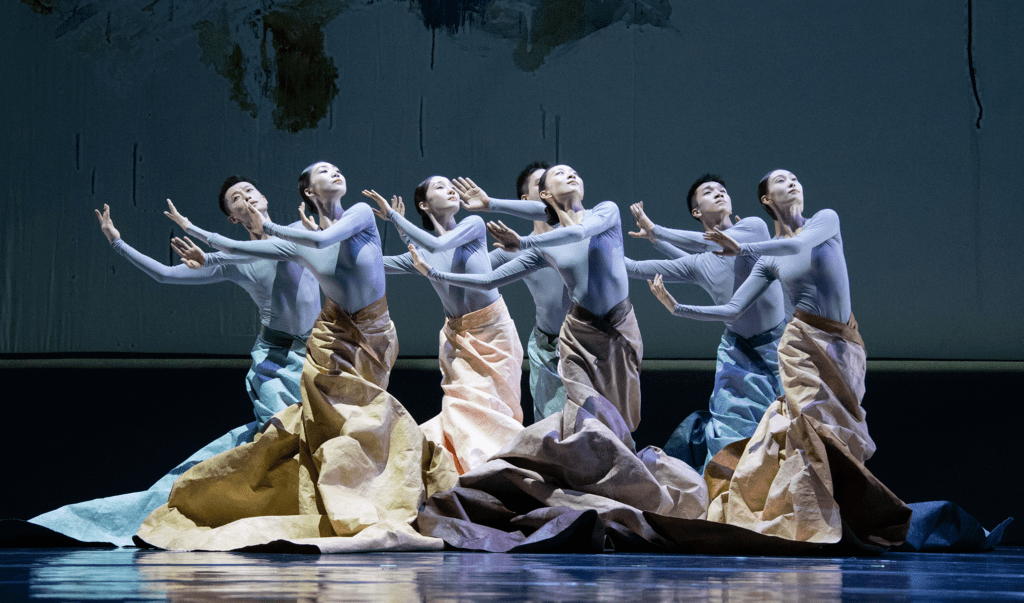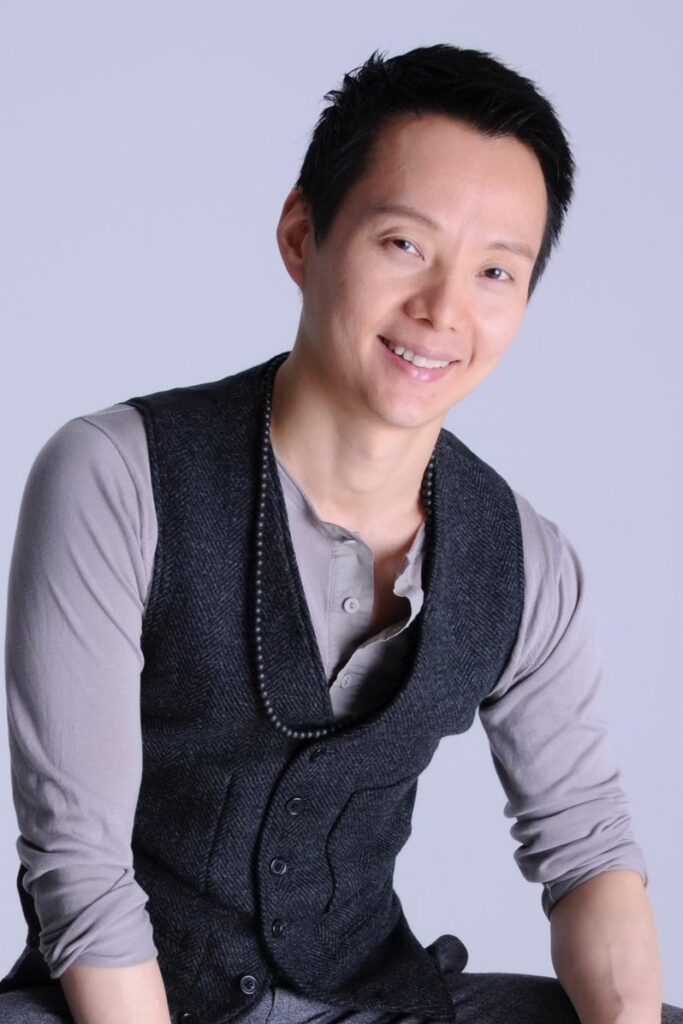Shen Wei’s Artistic Vision Knows No Limit in ‘Dongpo: Life in Poems,’ at the Kennedy Center
By • March 7, 2024 2 533

Shen Wei, the award-winning Chinese-American choreographer, dancer, director, painter and poet, took a break from rehearsal Tuesday afternoon for his upcoming production, “Dongpo: Life in Poems,” and spoke to me as he strolled the impressive halls of the Kennedy Center. “It brings back memories,” he recalled, “working with the Kennedy Center, five years in residence.”
Soft-spoken, articulate and energetic he shared his vision and dreams with visible passion. His inspiration in life, he told me, was Su Dongpo, the famed Chinese poet who lived 900 years ago (1037 to1101). Shen Wei, now 56, says he’s been following him since age six. Wei’s latest production, a contemporary operatic dance based on Dongpo’s poetry, opened in China, last December. He’s now preparing for a limited U.S. run at the Kennedy Center Opera House, beginning Friday and playing through Sunday, before heading to Lincoln Center, the only scheduled U.S. dates.
Wei hopes this production that combines art, poetry and movement on stage “will unite all people throughout the world—Eastern and Western. The themes — life journey, family, art, dreaming, questioning, sorrow, happiness — the unrestrained emotions are universal.” Sharing this, Wei hopes, will be his contribution to the world.
Wei feels a strong spiritual connection to Dongpo and feels it is spirituality that unites all humanity. He’s driven to bring Dongpo’s poetry to life on stage. He pointed out the similarities between the two creators.
“I’m like him, not just a writer, but a painter [currently working in watercolor]. We play the same musical instruments; both have colorful lives and a positive outlook,” said Wei who speaks of Dongpo in the present tense. For him, he’s as much alive today through his work and philosophy as ever. “Like me, he doesn’t have a permanent home. Since I was eight years old, I am traveling all the time.” And he always takes his paints or sketch pad with him.
Wei’s joie de vivre is evident. He’s even a self-anointed foodie and “invented menus,” he told me. It’s all part of the lifestyle he’s created and nurtured. He’s been writing poetry since he was a young boy and has plans in the works to publish a book of poetry.
Although most Americans are not familiar with Dongpo, Wei compared him to a folk icon. “His poems go with songs like folk songs about life, love and feelings,” he said.
Even Wei admits that “to make a work based on him is a challenge.” It required a chunk of research since he wrote more than 2,000 poems. Wei selected a line or two from a dozen of them to transform to movement and music. “Dongpo’s way of thinking artistically, the kind of visual stories he created, the environment he’s living in, is still meaningful today,” Wei said.
Wei’s major challenge after reading all 2,000 poems was to select those to include in this musical production considering relevancy to modern times. He considered subject matter—love, loneliness and family— and which are most important artistically and relate to all people’s lives — not just Chinese people—today. He then combined visual elements often using only a line or two from a poem with music and movement.
After delays including Covid, the production premiered in Shanghai just before Christmas 2023 and toured five cities in China, where it was well received. “It’s for all human beings,” Wei explained. “It’s about love.”
He calls the Kennedy Center and Lincoln Center in New York “my homes in the U.S. to show my work.”
That said, preparing for the U.S. production entailed considerations for difference in pace and culture. “In China, modern dance is not as much history and the past.” The Chinese “see things more in storytelling, more theatrical elements and dreams,” he said. Whereas “D.C. and New York audiences look for dance movements and sets.”
Wei added some English translation for the poems to accommodate U.S. audiences but emphasized that “music and dance are not like literature. We hear music and see movement.” That’s how performers communicate. “It’s not just words.”
“In the U.S., the movement means more whereas in China the poems mean more,” Wei explained. “In China, it’s a dance and music not theater or literature.”
He describes his job as “transforming poems to music to performance. The program has words.” He continues, “I don’t want the audience to feel like it’s literature.”
Fashionistas will be in for a surprise as well in terms of costumes. “This poet lived during the most beautiful and cultural time in China. Silk was elegant,” Wei said. “I want people to feel that kind of beauty. So, we combine traditional style with contemporary.”
The production is six acts, each taking the audience on a different journey experiencing human emotions, including pain and loss, but leaving them with positive feelings just as Dongpo did in his work. “We feel wise and good,” Wei said, “as we experience his life and emotions.”
“My passion is this work. It’s about how audiences respond in new ways to dance and music.”
Wei describes “Dongpo: Life in Poems” as “a colorful, feel-good production.”
“Dongpo: Life in Poems” plays at the Kennedy Center from March 8 to 10.

Choreographer and Painter Shen Wei in 2021. Photo by Chelsea Retzloff.


I have to get a better handle on what KC is doing…this is the first moment I have been made aware of what is up coming…Ever thought of sending out “what is coming” more in advance? you likely don’t need to cuz everything sells out??
Drats…see my comment